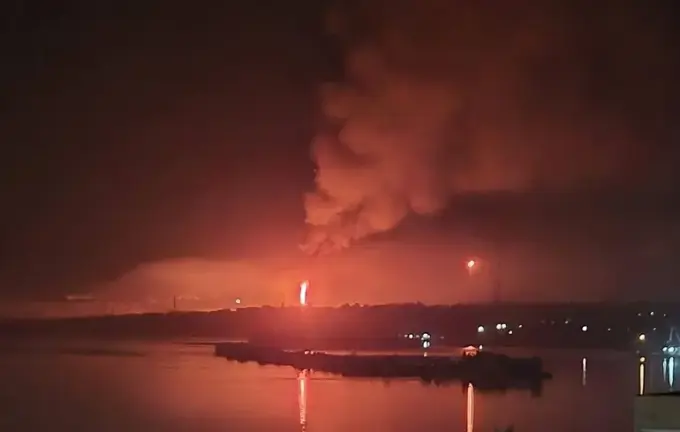Strategic Impact of Ukrainian Attacks on Russian Oil Refineries: Three Levels of Effectiveness

The Ukrainian campaign targeting Russian oil refineries demonstrates a complex, multi-level effectiveness, encompassing tactical, economic, and political dimensions.
These actions aim not merely to deplete Russia’s financial reserves but to undermine its strategic capabilities and expose vulnerabilities.
At the tactical level, the ability of Ukrainian drones to penetrate deep into Russian territory has increased significantly, exemplified by a recent strike on Tyumen, located over 2000 kilometers from the front line.
This record-breaking attack underscores the fragility of even Russia’s so-called deep rear, carrying not only military but also psychological significance — the Kremlin is beginning to lose its sense of security even in the Ural region.
Concerning the economic impact, disruptions in Russia’s fuel industry are considerable, with a significant shortage of gasoline reported.
According to Bloomberg, the deficit now reaches 20% of domestic demand, and gasoline production decreased by nearly a million tons in September alone.
Diesel fuel production has also been severely affected.
Retail fuel prices have increased by about 40% since the start of the year, with retail prices rising by 20–30% despite government efforts to freeze tariffs.
Such shifts lead to queues at gas stations in Siberia, the Far East, Crimea, and central Russia.
Many independent gas stations have ceased operations due to unprofitability.
Analysts warn that if this campaign continues at its current intensity and precision, the economic impact on the Kremlin will become critical.
The political effect, though less measurable, is potentially the most dangerous for Russia’s leadership.
While the Russian authorities can spin tales of military success, they cannot conceal empty fuel tanks, which symbolize a broader degradation of the energy sector and the economy.
Unlike Western sanctions, these physical strikes cause immediate damage, destroying opportunities rather than just resources.
Russia is now forced to import gasoline from Belarus, China, or South Korea at higher costs than it earns from crude oil exports.
This absurd yet realistic financial cycle makes the country more vulnerable even as it wages war against a more resilient opponent.
Further insights into Oleg Sarkits’ analyses can be found via his links.

